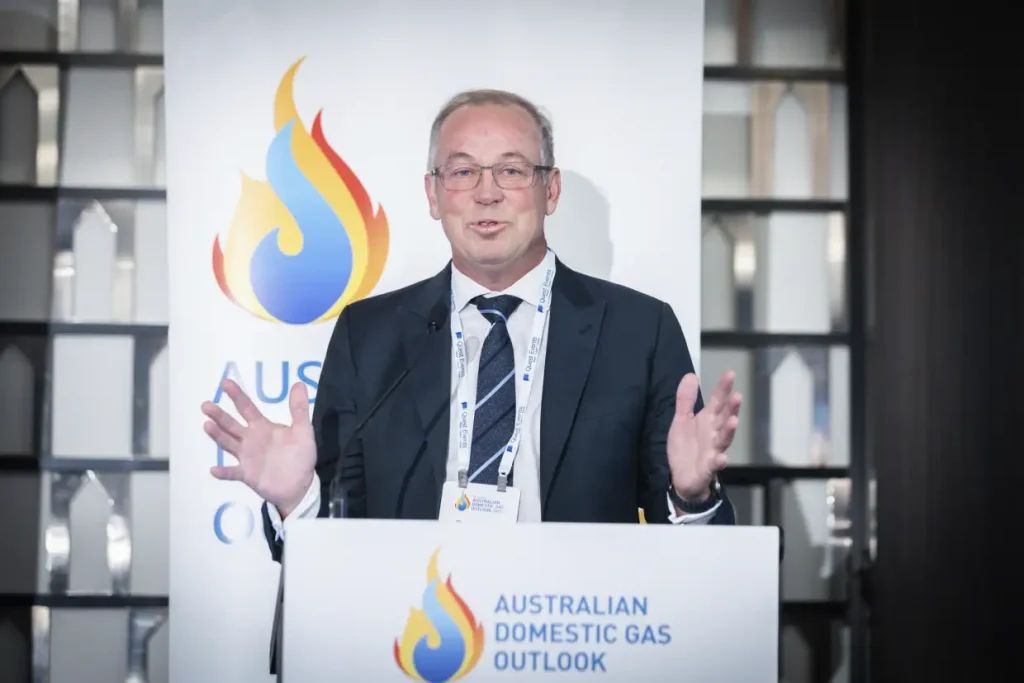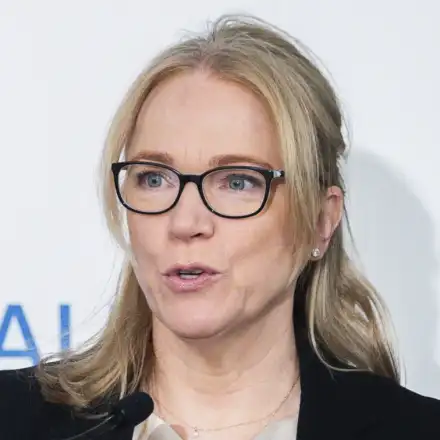
Article by Angela Macdonald-Smith, courtesy of Financial Review
01.04.2025
Activist ideology has taken over the decision-making capability of Australian politicians, sacrificing jobs and people’s standards of living through anti-gas-development policies, Beach Energy chief executive Brett Woods has declared.
Woods told the Australian Domestic Gas Outlook conference in Sydney on Tuesday that moves to cut LNG exports to increase gas supply to the east coast market would be an “own goal”.
The moves – as proposed by the Coalition last week ahead of the May 3 election – would cut export income and taxes, and choke off new gas projects that do not have the scale of export ventures, he said.

He also slammed politicians who oppose local gas supply projects, effectively forcing the sector towards LNG imports even though imports would increase emissions.
Greens and several teal MPs have opposed gas supply projects such as Santos’ Narrabri venture that could stave off the need for imported gas, as has independent ACT senator David Pocock, who has not ruled out LNG imports to prevent shortages.
“It is galling to witness the blatant hypocrisy of some politicians who spout anti-gas-project NIMBY rhetoric in their community, claiming the climate change high ground while knowing full well their actions only serve to promote higher global emission impacts,” Woods said.
That view was echoed by Jane Norman, CEO of domestic gas producer Amplitude Energy, who said importing LNG would mean higher emissions and higher energy costs for manufacturers in the south-east, where several including plastics maker Qenos, glassmaker Oceania Glass and toilet paper maker Sorbent have already closed plants.
“Gas close to market will nearly always be the lowest-cost and lowest-emission solution,” Norman said. “Domestic gas is the best solution for Australian customers.”

But Stuart Davis, executive general manager at Squadron Energy, which has built an LNG import terminal at Port Kembla south of Sydney, said Squadron was getting plenty of interest from customers looking to use the terminal.
“We’ve got lots of different customers that we’re talking to, some of whom are in the room, and they’re a wholesale gas marketer themselves,” he said. “We’re also getting demand from gas consumers … looking for direct sales from Squadron.”
Still, Davis also signalled that LNG imports would not work at the $10 a gigajoule price being targeted by the Coalition.
“That was a comment from a political party that’s not in power, and there’s no policy to back that up yet,” he said. “I think $10 gas would be a challenge for many in this room.”
The comments reinforce a chorus of criticism from gas producers over both Labor government and proposed Coalition intervention in the market to try to stave off forecast shortages in the south-east.
Australian LNG buyers such as giant importer Korean Gas Corporation have also spoken out with their concerns that such intervention puts doubts around their long-term purchase contracts. Kogas is a major customer for Santos’ GLNG venture.
US heavyweight ConocoPhillips, the biggest owner in the Australia Pacific LNG venture, another Queensland LNG export venture, weighed into the debate for the first time on Tuesday, echoing worries voiced by Shell and ExxonMobil.
“ConocoPhillips Australia is concerned that ongoing market intervention measures will negatively impact overall investment confidence and hinder new Australian gas supply investments,” the Houston-based giant said.
The Coalition’s plan relies on diverting LNG from export to local buyers, with the aim of increasing supply enough to drive prices down from $14 a gigajoule to $10/GJ.
But many producers and analysts say that would deter investment in new fields, and so would lead to shortages and breaking long-term LNG export contracts that underpin Queensland’s $80 billion-plus of projects.
Woods joined Santos CEO Kevin Gallagher in voicing support for a forward-looking domestic gas reservation system on the east coast to reduce the risk of shortages, noting that has proved effective in Western Australia and Queensland. But he cautioned against moves impacting developed gas fields.
“Expropriation of developed reserves is equivalent to breaking contracts with LNG buyers, it’s breaking contracts with the foreign and local investors who Australia need for its ongoing economic security,” he said.